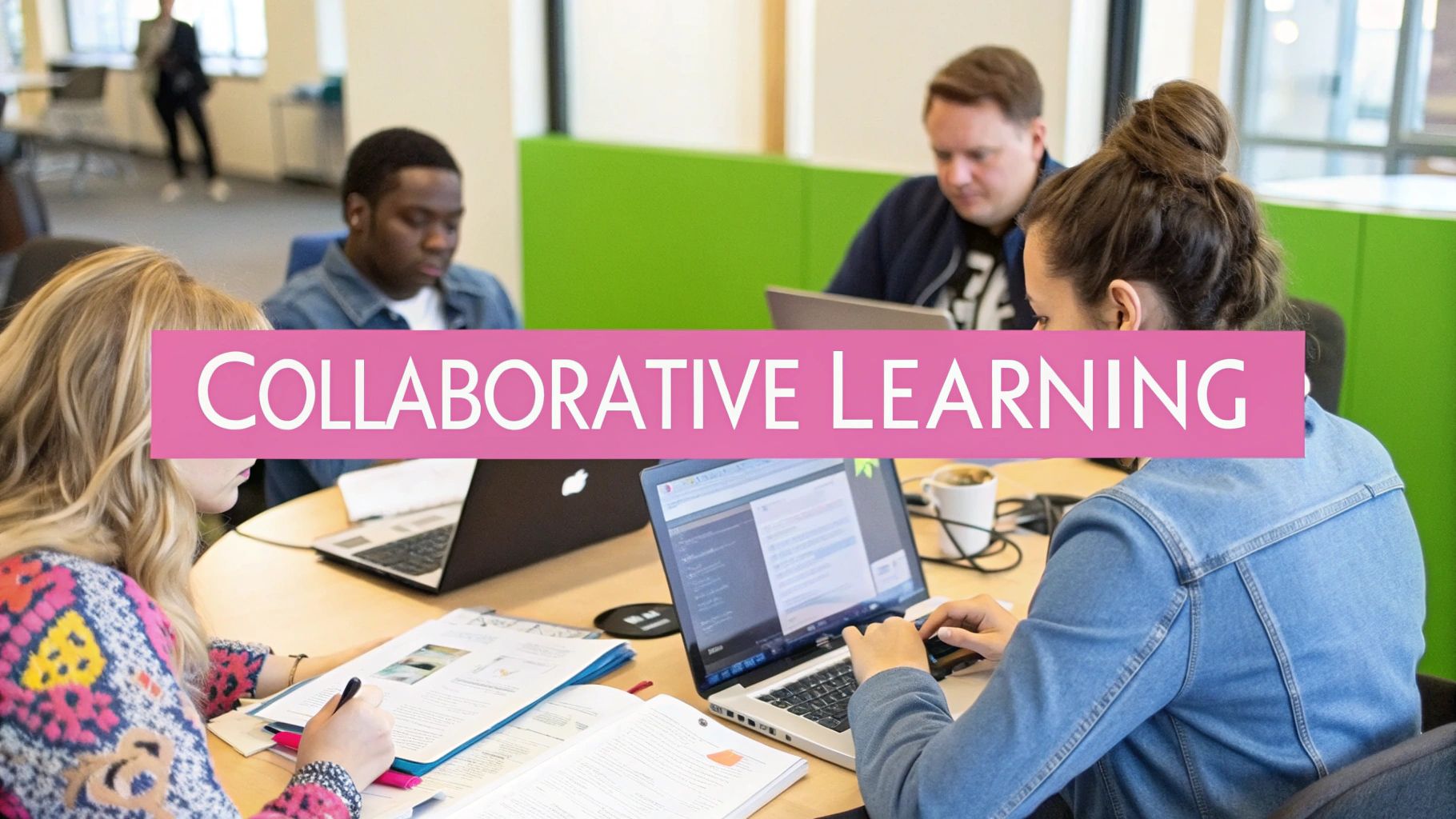
Proven Academic Success Strategies: Your Research-Based Guide to Excellence
Mastering Active Engagement in Your Studies

Success in academics requires more than just showing up to class – it demands full engagement with the learning process. When you actively participate in your education, you develop deeper understanding and retain information better. Let's explore practical ways to transform passive learning into an engaging and rewarding experience.
Personalized Note-Taking Systems
Everyone learns differently, so finding a note-taking approach that works for you is essential. Visual learners often do well with mind maps and diagrams, while those who learn best through listening may benefit from recording lectures. Take time to test different methods and tools – from traditional notebooks to digital apps – until you find what helps you capture and organize information most effectively. When you discover the right system, reviewing and remembering material becomes much more natural.
Sustainable Participation Habits
Regular participation in class discussions and study groups helps cement your understanding of the material. Start by setting realistic goals you can maintain, like speaking up once per class or joining study sessions twice weekly. Coming to class prepared after reviewing the material allows you to ask thoughtful questions and make meaningful contributions. This kind of preparation builds your confidence while reinforcing what you're learning.
Maintaining Motivation and Focus
The path through academics isn't always smooth, but staying motivated during tough periods is key. Break large assignments into smaller, doable tasks. Celebrate your progress along the way, no matter how small. Keep your long-term goals in mind while focusing on steady progress. Remember to take regular breaks and practice self-care – this helps prevent burnout and keeps you focused over time.
Deep Learning vs. Surface-Level Understanding
When you actively engage with your studies, you move beyond basic memorization to develop real understanding that lasts. Make connections between new concepts and what you already know. Look for ways to apply what you're learning to real situations. For example, understanding how a historical event relates to current events helps lock that knowledge in place. Research shows that students who actively work with course material earn better grades and remember more over time. By using these engagement strategies consistently, you'll build the foundation for genuine academic achievement and growth.
Maximizing Your Educational Resources
Succeeding academically requires more than just attending classes and reading textbooks. The key is making smart use of all available educational resources at your disposal. From professors' office hours to online study tools, there's a wealth of support options that many students don't fully tap into. Let's explore how to best use these resources to boost your learning.
Unlocking the Power of One-on-One Support
Personal guidance can make a huge difference in understanding difficult concepts. For instance, visiting professors during office hours gives you dedicated time to ask questions and gain deeper insights that may not come up during regular lectures. One-on-one tutoring sessions provide focused help in challenging subjects, allowing you to work through problems at your own pace. This individual attention helps build both knowledge and confidence in your studies.
Harnessing the Benefits of Collaborative Learning
Working with peers through study groups can take your learning to the next level. These sessions let you share different perspectives, test your understanding, and learn from others' insights. When you explain concepts to fellow students, it strengthens your own grasp of the material. The key is keeping study groups focused and productive – set clear goals for each meeting, choose motivated study partners, and stay on task during sessions.
Making the Most of Digital Learning Tools
Online resources have opened up new ways to enhance classroom learning. Academic websites offer practice problems, video explanations, and interactive exercises to reinforce course concepts. Your university likely provides access to research databases and digital libraries packed with scholarly materials. Learning to search these effectively helps with research papers and deepens your subject knowledge. Online study tools can also help organize your work and manage time better.
Prioritizing Your Resources for Optimal Impact
With so many options available, focus on the resources that match your needs and learning style. If you struggle with math, regular tutoring sessions might be your best investment. If you learn well in groups, make study sessions a priority. By choosing resources thoughtfully based on your goals and challenges, you can maximize the impact on your academic performance. The key is matching the right tools to your specific situation.
Understanding Your Personal Success Factors

Just like athletes train according to their individual abilities, academic success strategies work best when they match your unique characteristics. Everyone learns differently, and understanding your personal approach to learning forms the foundation for building effective study habits that last.
Identifying Your Learning Style and Strengths
Understanding how you naturally process information is essential for academic success. Some students grasp concepts best through visual aids like diagrams and charts, while others learn more effectively by listening to lectures or engaging in hands-on activities. For instance, if you find yourself easily remembering information from class discussions, you might be an auditory learner who would benefit from recording lectures to review later. Beyond learning style, recognizing your core strengths – whether you excel at problem-solving or detailed research – helps you approach studying with confidence and build on your natural abilities.
Analyzing Your Personal Circumstances and Challenges
Your daily life significantly impacts your studies. Work schedules, family duties, and travel time all affect how much energy and attention you can dedicate to learning. Being realistic about these factors helps you create study plans that actually fit your life. For example, if you have a long commute, you might use that time for reviewing audio materials instead of trying to squeeze in extra reading at night when you're tired. Identifying specific challenges, whether it's staying focused during long study sessions or managing multiple deadlines, allows you to find practical solutions like breaking work into shorter chunks or using study groups for accountability.
Developing a Personalized Study Approach
Once you understand your learning preferences and daily realities, you can create study methods that truly work for you. This means choosing techniques that match both how you learn best and address your specific challenges. For example, if you're a visual learner who struggles with time management, you might combine color-coded study schedules with mind maps for organizing course material. When your study approach aligns with your natural tendencies, learning becomes more efficient and enjoyable rather than feeling like an uphill battle.
Creating Your Optimal Learning Environment
The physical space where you study can make a huge difference in your focus and productivity. Some students concentrate better in complete silence, while others need background noise to stay alert. Take time to experiment with different settings – try studying in the library, at home, or in a café to find what works best for you. Pay attention to factors like lighting, temperature, and potential distractions. Once you identify your ideal study conditions, you can recreate them consistently to help your brain get into learning mode more easily. This attention to your study environment, combined with your personalized learning strategies, sets you up for sustained academic success.
Implementing Data-Driven Study Strategies
A personalized study approach, though essential for academic success, is only the beginning. Taking it to the next level requires incorporating concrete data and measurable results into your study routine. This means keeping track of your efforts, examining what works, and fine-tuning your methods based on real evidence – similar to how a coach reviews game footage to spot areas for team improvement.
Tracking Your Study Habits
Start by documenting exactly how you use your study time. A basic spreadsheet or planning app works well for this purpose. Note down which subjects you tackle, what methods you employ (like flashcards or practice problems), and how long you spend on each activity. If you dedicate an hour to history notes followed by math practice problems, record these separately. This detailed approach shows you precisely where your time and energy are going.
Setting Measurable Goals and Benchmarks
After logging your habits for a couple weeks, create specific goals you can measure. Rather than a vague aim like "study more," pick concrete targets such as "solve 10 calculus problems daily." This lets you clearly see your progress. Also set checkpoints along the way – like hitting certain scores on practice tests or reading a set number of pages weekly. These markers show whether your study methods are actually getting results.
Analyzing Your Performance Data
Take time to review your data regularly to spot key patterns. Do you consistently struggle with certain subjects or study methods? For example, if you spend hours reading but your quiz scores stay low, this suggests reading alone isn't working for that subject. You might need to try flashcards or join a study group instead. Looking at your data this way helps identify both strong points and areas needing work so you can adjust your approach.
Adapting Your Strategies Based on Results
The real value of tracking your study data comes from using it to keep improving. When a method isn't working, try something different. You might switch from passive reading to active recall or add more visual aids. Just as scientists refine their experiments based on initial findings, you should fine-tune your study approach based on what your data reveals. For instance, if you notice better focus during short study sessions with breaks, make that part of your regular routine. By consistently monitoring your results and making changes accordingly, you'll turn your study habits from a fixed system into an evolving process that leads to better learning outcomes.
Building Your Academic Success Mindset

Your approach to learning shapes your academic journey as much as your study habits. Success in school requires more than just positive thinking – it demands mental toughness and internal drive to overcome challenges. Let's explore the key mental components that form the foundation of academic achievement.
Cultivating Resilience: Bouncing Back From Setbacks
Every student faces academic difficulties at some point, whether it's a disappointing test grade or a challenging project. What matters most is how you respond to these obstacles. True resilience means viewing setbacks as chances to learn and improve rather than as failures. For instance, if you perform poorly on a quiz, take time to review what went wrong, adjust your study approach, and tackle the next assessment with fresh determination. By focusing on growth instead of dwelling on mistakes, you maintain forward momentum in your studies.
Maintaining Intrinsic Motivation: Fueling Your Drive
While good grades and recognition feel rewarding, lasting academic success comes from genuine interest in learning. This internal drive stems from connecting deeply with your subjects and having clear goals. When you align your coursework with your future aspirations – like studying biology because you want to help people as a doctor – it reinforces your sense of purpose. This personal connection to your studies provides steady motivation through difficult periods.
Effective Stress Management: Staying Calm Under Pressure
Academic pressure is normal, but managing it effectively is essential. Rather than trying to eliminate stress completely, focus on healthy ways to handle it. Build a foundation of self-care through regular exercise, proper nutrition, and consistent sleep. Simple practices like deep breathing or meditation can also help calm anxiety and sharpen focus. Think of stress management like regular maintenance – investing time in these habits prevents burnout and helps you perform at your best.
Balancing Multiple Responsibilities: The Juggling Act
Most students need to balance academics with work, family, and social commitments. Success requires careful planning and clear priorities. Create a realistic schedule that allocates specific blocks of time for studying, work, and personal activities. Just as a project manager coordinates different tasks, you must strategically manage your time to give adequate attention to each area of your life. This organized approach prevents overwhelm and helps maintain steady academic performance. Combined with mental resilience, good planning forms the basis for long-term success in school.
Creating Your Personalized Success Framework

Success in academics requires more than just applying random study tips – you need a cohesive system that fits your unique needs and goals. Think of it like fitness training – a marathon runner needs a very different plan than a powerlifter. Your academic framework should reflect your specific learning style, schedule, and objectives.
Defining Your Academic Goals and Objectives
Start by getting crystal clear on what you want to achieve. Rather than vague goals like "do better in class," set specific targets you can measure. For instance, "earn a B+ or higher in Chemistry 101 this semester" gives you a concrete benchmark. This clarity helps you track progress and adjust your approach when needed.
Integrating Your Learning Style and Resources
Your framework should play to your natural strengths. Visual learners might rely heavily on diagrams and video content. Those who learn best in groups should make study sessions a priority. Take full advantage of available help – from professor office hours to online study tools. Students who actively use academic resources consistently perform better than those who go it alone.
Developing a Structured Study Schedule
A well-planned schedule forms the foundation of academic success. Block out dedicated study times that match your peak productivity hours while accounting for other commitments. Break big assignments into smaller tasks – for example, review lecture notes on Mondays, complete practice problems on Wednesdays. This structured approach builds strong study habits.
Implementing Progress Tracking and Adjustment Mechanisms
Monitor your performance regularly through quiz scores, assignment grades and overall progress. When certain study methods aren't working, try new approaches. Maybe flashcards work better than note rewriting for memorization, or joining a study group improves your grasp of complex topics. Stay flexible and willing to adapt based on what the results show.
Remember that your academic framework will evolve as you progress through your studies. Your goals, preferred learning methods, and available resources may shift over time. Review and refine your system regularly to keep it aligned with your current needs. This dynamic approach not only supports academic achievement but also builds valuable skills in self-reflection and adaptability.
Ready to take your studying to the next level? Notescast, an app that transforms your notes into engaging videos, can be a powerful addition to your success framework. Visit https://notescast.app/ today to discover how to make learning more efficient and enjoyable!
